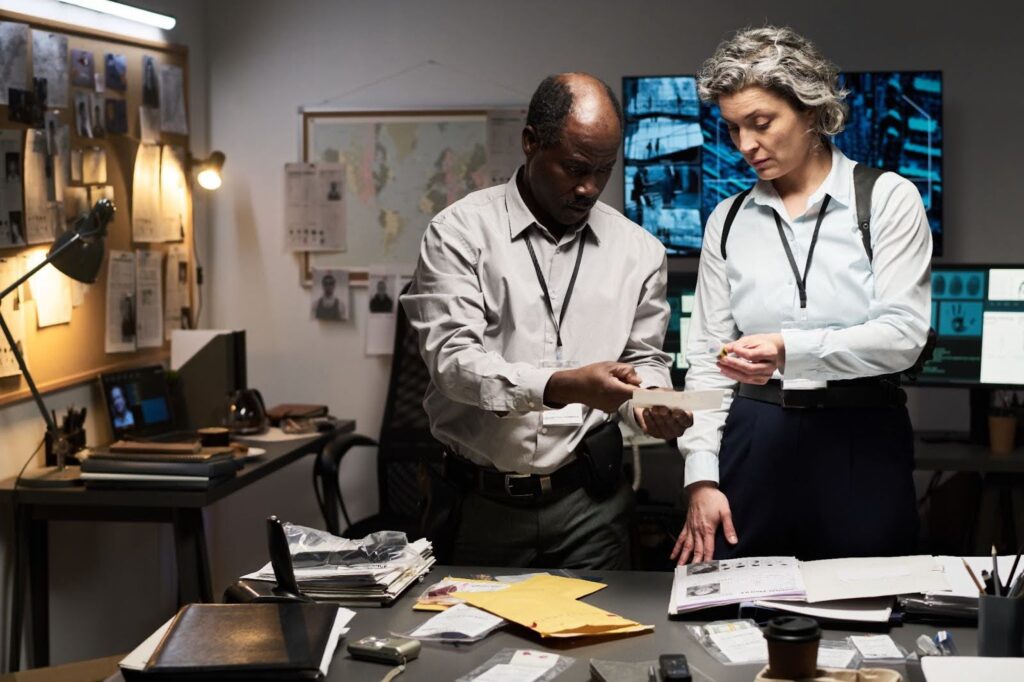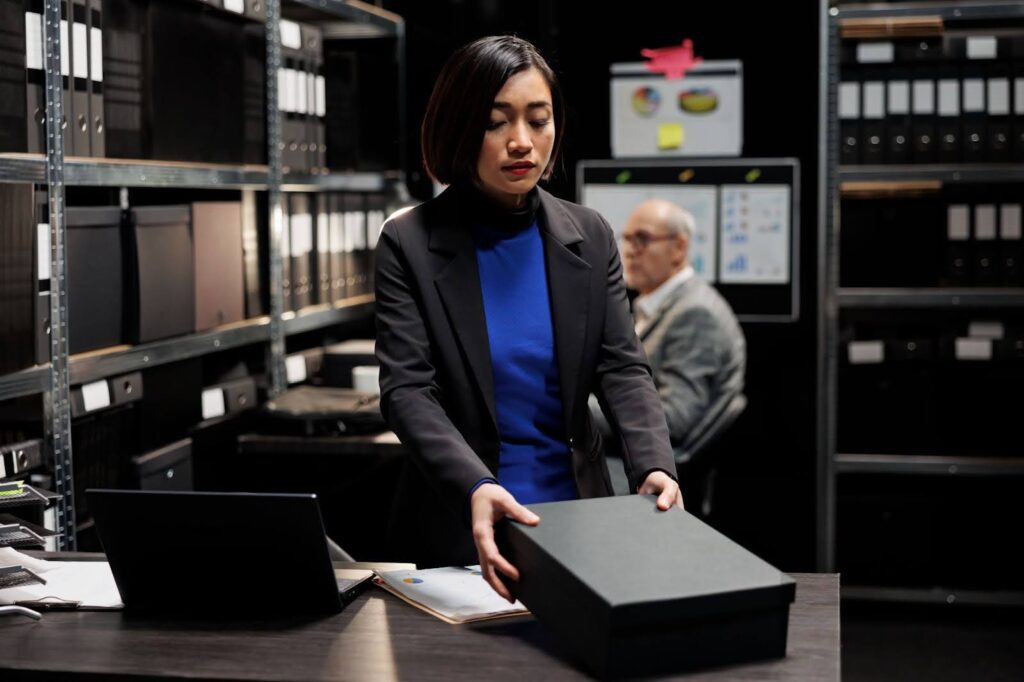
Private investigations have been portrayed for decades in books, films, and television shows as a thrilling, dangerous, and often exaggerated profession. From trench coat detectives chasing criminals in dark alleys to computer hackers breaking into secure systems, many images of private investigations are far from reality. While private investigations are indeed fascinating and highly valuable, their proper scope, responsibilities, and legal limits are much more professional, structured, and ethical than most people realize. Misconceptions about private investigations can lead clients to have unrealistic expectations or misunderstand what these professionals can achieve.
Understanding Private Investigations
Private investigations are specialized, licensed services that focus on gathering information, verifying facts, and providing support for legal or personal decisions. Unlike fictional characters, real private investigators are trained professionals who work under strict rules and ethical codes. Their work encompasses a range of tasks, including surveillance, witness interviews, background checks, and document research, tailored to the specific needs of each client. The purpose of private investigations is to produce legally obtained, accurate, and reliable information that can withstand professional or legal scrutiny.
Common Myths About Private Investigations
Several common myths persist about private investigations, often shaped by movies or television. Let’s break down these ideas and examine the facts. Understanding these misconceptions will help you make better decisions if you ever need professional investigative services:
Breaking the Law
A common myth suggests that private investigators can break the law to get results, but licensed professionals are required to follow all applicable state and federal regulations. They cannot trespass, wiretap without consent, impersonate police officers, or hack into private accounts, as violating these laws could result in the loss of their license or lead to criminal charges. Professional private investigations always operate within legal boundaries to protect clients and preserve evidence.
Making Arrests
Many people believe private investigators can arrest suspects, but they do not have police authority and cannot detain anyone or use force. If they witness a crime, they must report it to law enforcement instead of taking action themselves. Their role is to legally observe, document, and provide reliable information to support official investigations.
Dangerous Work
Movies often portray private investigations as dangerous and action-packed, but real work is far less dramatic. Investigators focus on patient research, interviews, and discreet surveillance from a safe distance, rather than engaging in confrontations or undercover operations. Their priority is always gathering legal and professional information while minimizing risk.
How Surveillance Works in Private Investigations
Surveillance is a crucial tool in private investigations, but its realities differ significantly from the dramatic stories portrayed on screen. In practice, surveillance requires patience, legal awareness, and careful planning to ensure it complies with privacy laws and ethical standards.
Ethical Surveillance
Private investigators can legally observe subjects in public spaces where there is no expectation of privacy, but they cannot trespass or install hidden cameras in private areas. Ethical surveillance relies on monitoring and documenting without interfering with or violating personal rights. This careful approach helps ensure evidence remains valid and legally defensible.
Modern Technology
Contrary to Hollywood myths, private investigations today utilize lawful, regulated technology, including GPS trackers with consent, discreet cameras in public, and publicly available data. Investigators must strictly adhere to privacy laws and consent rules when using these tools. Following these standards protects both the client and the subject’s civil rights.
Safety Considerations
Reckless surveillance is unsafe and unprofessional; therefore, genuine private investigations are carefully planned to avoid physical confrontations and legal trouble. Most evidence comes from safe, discreet observation and note-taking rather than dramatic showdowns. By prioritizing safety and professionalism, investigators safeguard everyone involved and uphold the highest ethical standards.
Professional Conduct in Private Investigations
One of the biggest myths is that private investigators are inherently shady or unethical, but real professionals hold themselves to high standards rooted in honesty, confidentiality, and respect. Professional investigators do not pretend to be police officers or misrepresent their credentials to deceive people, recognizing that honesty is crucial to maintaining strong, credible evidence. They handle highly sensitive information with great care, protecting trust throughout the investigation. Harassment, threats, or intimidation have no place in legitimate private investigations. Licensed professionals respect the rights of everyone involved and work in a professional, courteous manner. By upholding these ethical commitments, private investigations continue to be a valuable and trustworthy service for those seeking answers.

The Role of Background Checks in Private Investigations
One area where myths persist is the process by which private investigators conduct background checks. In reality, these checks are conducted using publicly available, legally obtained information and follow strict regulations to protect individual privacy.
Public Records
It is perfectly legal for private investigators to access public records, such as court filings, marriage licenses, or property deeds. These sources help verify information without violating privacy. Private investigations rely on legitimate, publicly available documents rather than illegal hacking or breaking into confidential databases.
Criminal History
People sometimes think that private investigators can obtain sealed or expunged records, but this is not the case. Private investigations can only look at criminal history through proper, public channels. Investigators cannot impersonate authority or use force to get confidential records. Laws protect these files, and professional investigators respect those rules.
Workplace Records
Verifying employment is another aspect of background checks. Private investigators cannot deceive employers or pose as HR representatives to obtain confidential information. Instead, they rely on legal, authorized processes or ask for subject permission if a deeper check is needed. Following employment privacy laws is crucial to ensure valid results.
Solving Missing Person Cases With Private Investigations
One area where private investigations play a vital role is in locating missing people, but myths cloud the reality of these efforts. In truth, finding someone often requires careful research, legal methods, and respectful communication rather than dramatic rescue missions.
Finding Witnesses
When legal teams need to find witnesses, they may turn to private investigations to track them down. Investigators use interviews, public records, and observation to locate witnesses, but cannot force anyone to testify or provide information against their will. Professional investigators respect a witness’s rights throughout the process.
Family Reunions
Clients sometimes believe private investigators can reunite separated family members overnight. In truth, private investigations require time to verify records, confirm identities, and ensure that any reunion is conducted respectfully and voluntarily. Investigators cannot force anyone to reconnect if they choose not to.
Debtor Location
Tracking down debtors is another realistic application of private investigations. Investigators use legal records and discreet inquiries to locate individuals who are avoiding their financial responsibilities. However, they cannot threaten, impersonate law enforcement, or harass a subject to force payment, staying within the law at all times.
Licensing Rules for Private Investigations
Private investigators are regulated by strict licensing requirements to ensure quality and protect public safety. State agencies oversee licensing by conducting background checks, administering tests, and enforcing professional standards, ensuring that only qualified individuals practice private investigations. To maintain their licenses, investigators often complete continuing education courses so they stay updated on current laws and investigative techniques. Additionally, local laws govern the conduct of private investigations, including regulations for surveillance and data privacy. Investigators must adhere to these regulations to ensure the protection of their cases and clients. By combining oversight, training, and respect for local laws, professional licensing ensures that private investigations are conducted responsibly and in accordance with the law.
Legal Evidence in Private Investigations
Gathering evidence is a vital service, but the myth of rule-breaking detectives is far from the truth. Professional private investigations adhere to strict legal guidelines to ensure that any evidence collected is both admissible and reliable.
Document Retrieval
Private investigators legally obtain documents, such as court records, property titles, or business registrations, from public sources to ensure evidence is admissible and defensible. They cannot break into private systems to retrieve documents that are protected by law.
Interviews
Interviewing witnesses is another lawful tool for private investigators. Investigators identify themselves truthfully and document statements without threats or coercion. This information can be crucial to a legal case if appropriately gathered.
Online Research
With so much information available online, private investigations often include reviewing social media and public websites. Investigators cannot hack into accounts or steal passwords, but they can document what is publicly posted. This legal, transparent approach supports evidence collection.
How Private Investigations Stay Within the Law
The biggest myth of all is that private investigations operate outside the law. In truth, licensed investigators are required to follow strict rules. They balance their clients’ goals with legal protections, ensuring evidence is collected fairly and ethically. Their training, licensing, and professionalism make them skilled, law-abiding partners for legal or personal matters. When you work with a reputable private investigations firm, you can trust that the methods will be legitimate and defensible.

What to Look for in Private Investigations Services
Choosing a qualified investigator is about more than finding someone with skills — it means working with someone who values ethics and respects the law. A trustworthy professional will be transparent about their abilities, their licensing, and their ethical commitments. Arkansas Investigations proudly adheres to strict standards, offering confidential, respectful, and legally compliant private investigations for clients throughout the region. If you are ready to explore your options, reach out to our team today for guidance you can trust.
To learn more about common myths surrounding private investigators, visit our Arkansas Investigations blog.

